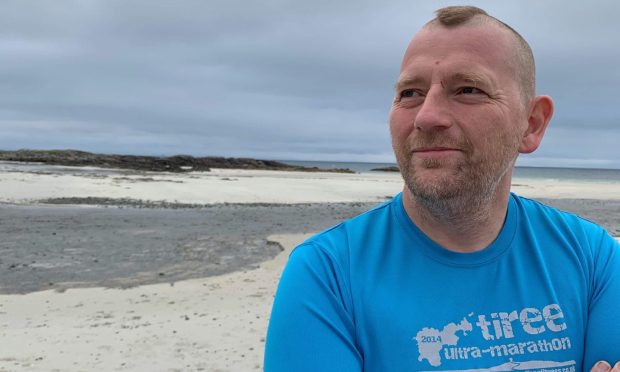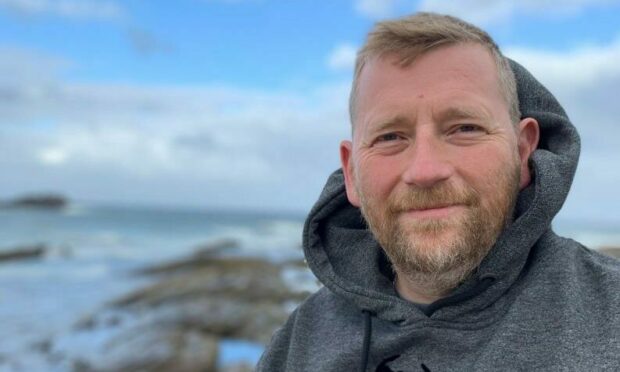A Perthshire man who had a stroke in 2019 is now helping to shape decision-making and research into the condition.
Andy Wilson, from Errol had a stroke after running a half marathon and undertaking a 30-mile cycle with his son, Jake.
The 48-year-old is now calling for people with lived experience of having had a stroke to be more involved in research.
It comes as the Stroke Association has published a new report outlining its top 10 priorities for stroke research.
Before his own, Andy did not realise how life-changing a stroke could be.
His stroke left him with one-sided weakness, extreme fatigue and difficulty processing information.
But through his perseverance and motivation, he has gone back to work on a phased return and is once again participating in less strenuous outdoor pursuits.
Now he is working with the Stroke Association to raise greater awareness among communities.
“Stroke research is important to me”, he said.
“There are many effects of stroke including fatigue and the psychological consequences of stroke that we should know more about.
“We need to involve people with lived experience of stroke in decisions around stroke priorities to inform researchers and funders about what really matters to us.
“We know what our difficulties are, and I believe further understanding of those difficulties is a good step towards finding treatments and solutions to enable people to live the best possible life they can.”
Mental and emotional impact of stroke
Andy is one of more than 1,400 people affected by a stroke and professionals who took part in the project.
The Stroke Association’s top priorities include interventions to prevent strokes and creating better understanding of the mental and emotional impact of a stroke.
Director of Research and Policy at the Stroke Association, Dr Rubina Ahmed said: “Charities like ours need to look for new ways to help stroke survivors with emotional, mental and communication problems.
“Establishing what research will make the biggest difference to stroke survivors and those caring for them is just the first step.
“We would like to thank everyone who took part in this project.
“By having your say for stroke, you have helped to shape stroke research to rebuild lives.”

